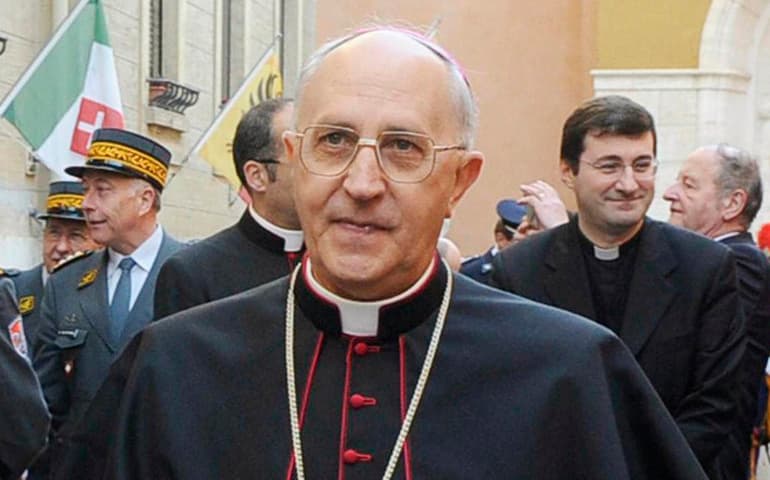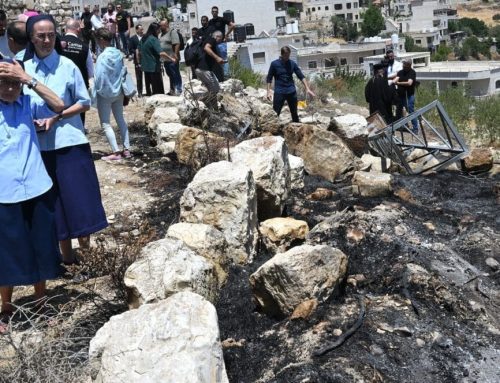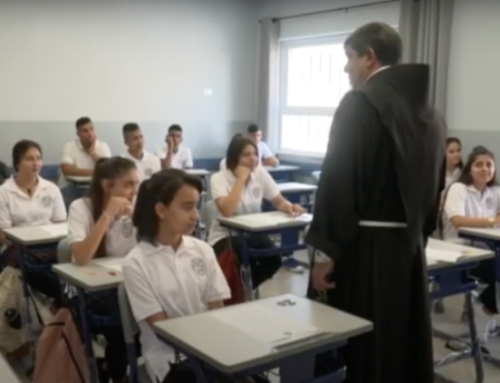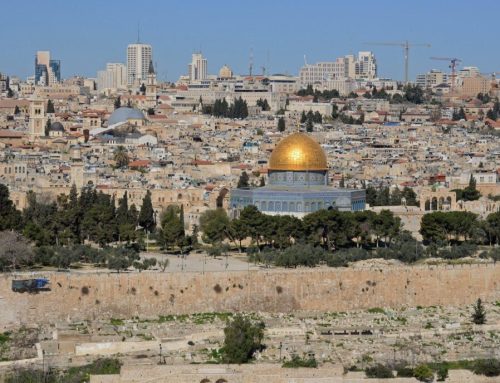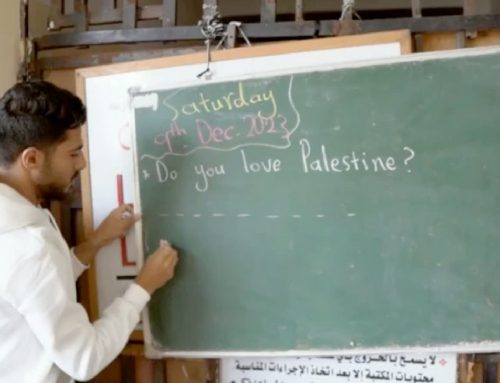A top cardinal and leading papal diplomat has said that amid the ongoing war in Gaza, peace in the Holy Land requires a change of mentality in which both sides recognize and respect each other’s right to exist, regardless of whether there is one state or two.
“I don’t know if two states are better than one, integrated,” said Italian Cardinal Fernando Filoni, a veteran diplomat and currently Grand Master of the Equestrian Order of the Holy Sepulchre of Jerusalem.
Asked whether the two-state solution was still a viable option, Filoni said, “I can’t say,” and added that predicting the potential outcome of such a solution is difficult, because “they are two realities that live in the same territory.”
The Vatican has long insisted on a two-state solution to the Israeli/Palestinian conflict, a position reaffirmed recently by Pope Francis in an interview with an Italian media outlet. Filoni’s comments represent one of the first hints that at least some in the Vatican may be rethinking that stance.
Filoni said the most important thing, in his view, is to have “the rights of each one” respected, meaning both Israel and Palestine, “without having citizens of first-class, second-class, third-class.”
Speaking to journalists at a media roundtable last week, Filoni said that as a basic principle, “You cannot have peace without justice.”
“A peace that is not just creates new wars, new hatred, new violence,” he said, noting that the Second World War broke out because citizens in Germany believed they were victims of injustice.
“I’m not judging whether it’s true or not, but it was like this. Then in other parts of the world, it’s the same thing. When a people, a group, a reality, feels that they are the victim of injustice, if they are not listened to, it foments and hatred is born and grows and, at a certain point, becomes violent,” he said.
Former nuncio to Iraq and Jordan from 2001-2006, Filoni served as sostituto of the Vatican’s Secretariat of State, a position akin to the pope’s chief of staff, from 2007-2011, when he was named prefect of the former Congregation for the Evangelization of Peoples, a position he held until his appointment Grand Master of the Order of the Holy Sepulchre in 2019.
When it comes to the Holy Land, Filoni said that in his view, the current divisions stem from a lack of tolerance and respect for basic rights on either side.
“You cannot negate Palestinians the right to exist, and you cannot deny Israelis the right to exist, both of them, in peace. You cannot say, we want the destruction of Israel, this always generates new violence. Just as you cannot say, we want to destroy the Palestinians, you can’t say this,” he said.
Referring to the Israeli settlements in the occupied territories, Filoni said the Palestinians believe their land has been illegally occupied, and that “this is not normal, this is an act of violence.”
Peace, he said, is “not about balancing between one side and the other, it’s to say that these elements, these violences, create situations of conflict that become war.”
“We remain in the principle that peace is possible if done in justice and in recognition of everyone’s rights,” he said.
In terms of how to get out of the longstanding regional dispute between Israel and Palestine, Filoni said regardless of whatever proposal is deemed best, “you must sit at the table and discuss it, but the right to existence must be guaranteed by all.”
“Little by little empty, these hatreds, these tensions, must be emptied, otherwise they’ll become almost natural and little by little they grow and then they erupt,” he said, voicing his belief that peace is still possible, but “we must want it, we must work for this.”
However, most of all, he said, “We should not carry injustices forward, otherwise peace will not be achieved.”
Filoni also spoke of the work performed by the Order of the Holy Sepulchre, composed of some 30,000 knights and dames from around the world. It attracts roughly 1,000 new members annually and is dedicated to providing financial support to the church in the Holy Land.
Filoni said most of the support provided by the order is sent directly to the Latin Patriarchate of Jerusalem and distributed to projects and populations most in need.
One major source of funding, aside from the contributions of individual members, is the order’s famed Palazzo della Rovere along the Via della Conciliazione, the main street leading up to the embrace of Bernini’s colonnades in St. Peter’s Square, which is about to be converted into a luxury Four Seasons hotel.
Filoni said that around 10 percent of the money the order draws in from these and other sources is used to cover administrative costs of running the order, and that around 90 percent, “if not more,” is sent directly to the Latin Patriarchate.
In terms of what role the order may have in promoting peace amid the ongoing conflict, which erupted after Israel retaliated for an Oct. 7, 2023, surprise attack by Hamas that left some 1,200 Israelis dead and over 200 others taken as hostages, Filoni said it comes down to daily actions.
“We are not architects of peace in the Holy Land, we are small workers, we stay in our place, and we try to do well what we can, or no one else will,” he said, saying members are tasked with promoting justice and love through their work.
One of the main ways to promote peace is through education, he said, noting that the Order funds schools in the Holy Land where some 20,000 students, around half of whom are Muslim, are educated.
“We can teach peace from the base to young people,” he said, saying, “if we create a calm, respectful environment where we teach peace, mutual respect, and human rights (then) we are promoting peace” to both students and their parents.
Filoni said surrounding countries such as Jordan also have a role to play in the current conflict in Gaza, and that longstanding regional alliances can help alleviate the situation for those bearing the brunt of the violence.
To this end, he noted that Jordan runs a hospital in Gaza that is still operational amid the current war, and that the pastor of Gaza has taken people there for treatment.
He noted that in some areas of the Holy Land, a crossroads of different peoples live in peace, whereas in other places there is conflict. He noted there are still many places where Christians are a minority and face hostility, being required to pay a tax to live in Muslim territory or enduring legal and social discrimination, among other things.
“Culturally, this exists. So, if we eradicate the concept of who is first-class, second-class, who has the divine right, then” peace would be easier, Filoni said.
The first and most important thing to work for, he said, is coexistence, “always in the right of all to live with justice and the recognition of everyone’s rights, because if this is lacking, two states or three states, problems would exist.”
By Elise Ann Allen | cruxnow

